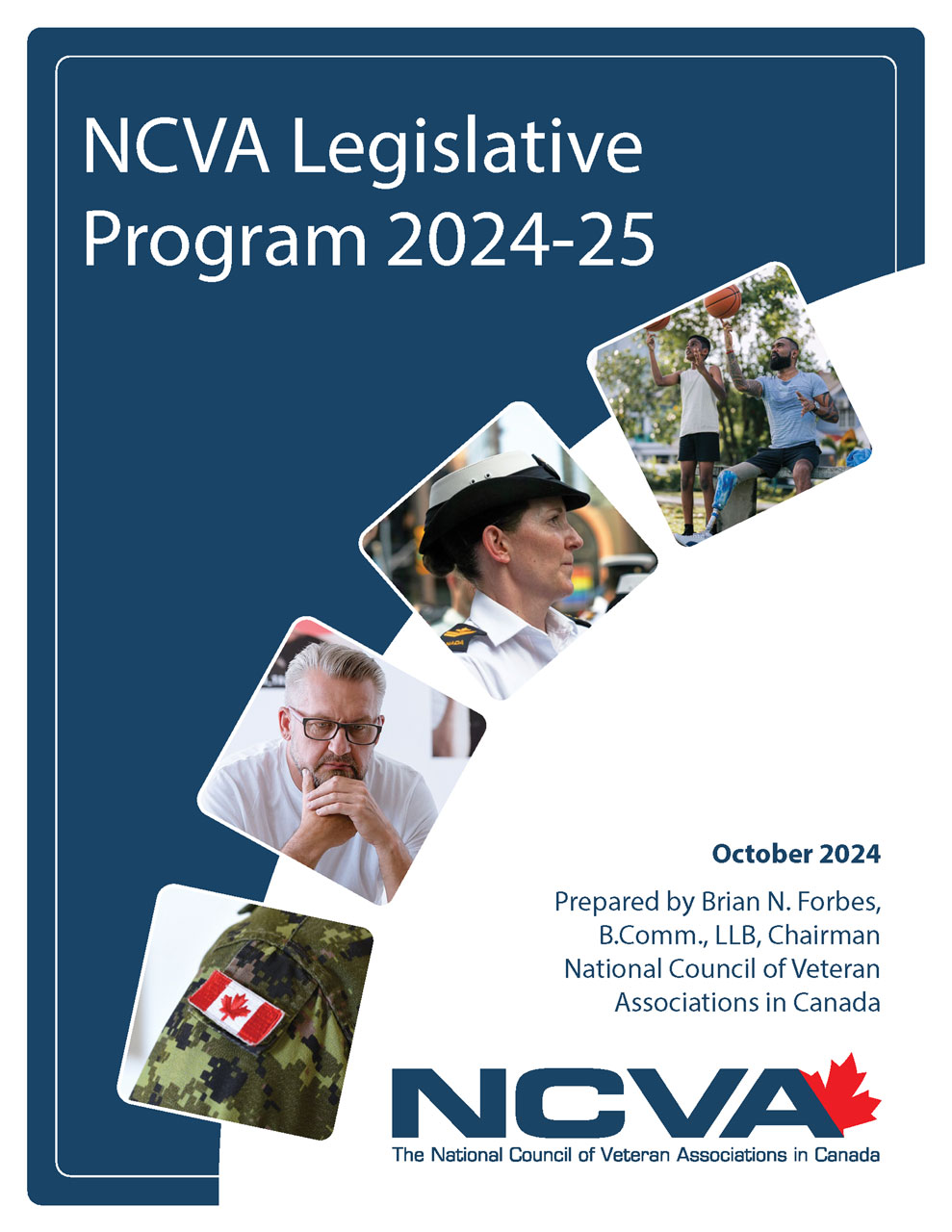
Upon evaluation of the past year, the National Council of Veteran Associations in Canada (NCVA) and our 68 member associations continue to have significant concerns with respect to veterans legislation, regulations and policies. Our Legislative Program for 2024‑25 underlines the essential steps required of the Government and Veterans Affairs Canada (VAC) to rectify the ongoing inequity and injustice impacting disabled veterans and their families.
We remain hopeful that the appointment of the Honourable Ginette Petitpas Taylor as the new minister of veterans affairs/associate minister of national defence will indeed invigorate momentum for the required veterans legislative reform as enunciated in our NCVA Legislative Program.
The complete Legislative Program is available now. Below are our recommendations with respect to topics on veterans legislation, regulations and policies.
- Introduction
- "One Veteran – One Standard"
- SISIP LTD/VOC-REHAB Programs
- Benefits to Support Families/Veteran Caregivers
- Progressive Future Loss of Income (New Career Impact Allowance)
- VAC Backlog/Wait-Time Crisis
- Presumptions – Veterans with Cancer
- Sexual Misconduct and Cultural Change in the Canadian Armed Forces
- Marriage After 60
- Rehabilitation Services and Vocational Assistance Project (RSVP)
- Veterans Legislation and Policies
- Long-Term Care/Intermediary Care
- Last Post Fund/Veterans Burial Regulations